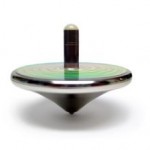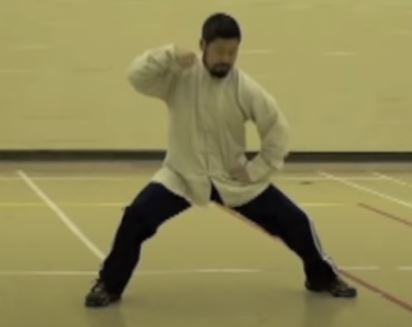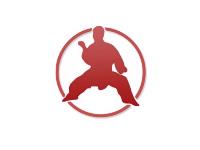 It’s easier to know the Dao than to believe in the Dao;
It’s easier to know the Dao than to believe in the Dao;
It’s easier to believe in the Dao than to act on the Dao.
It’s easier to act on the Dao than to gain the Dao.
It’s easier to gain the Dao than to keep the Dao.
The problem with learning is that people confuse “to know” with “to believe”. They mistake “to believe” with “to act”. When they put their beliefs into action, they think they already have gained something. When they are just starting to “get” something, they falsely consider themselves the keeper of the principles of Taiji.
Originally published Dec 2007, please comment on how this saying relate to Taiji training



{ 9 comments… read them below or add one }
Master Chen shows us an example,
we think we understand what he demonstrated, therefore we believe it can be done, in believing it can be done we try to imitate him, in trying to imitate him we make our own movements out of it.
‘sticking to the principles’ can be a tough to achieve.
I for one have always been trying to understand the principles of taiji, but maybe they are a lot tougher to realize than to spell out.
For example: Elbow in, Hand out, easy right? But can you do it flawlessly?
Is what you end up doing, what was actually meant and required?
So in the end, did you really understand it, and therefore can you really perform what you read/saw?
After trying a lot of things for a while, I just simply stick to what Master Chen told me in person, everything else is probably just relative to my own understanding.
Besides, sometimes when you want to achieve a new way of viewing things, you need to go blind folded for a while, and simply follow the teachers steps.
Stick to what you’re told, and not what you see, or what you think you see.
To me thats mostly what has happened so far, though i still feel totally lost all the time.
But i guess the real question in my mind is: is it even meant to be understood, or is it simply to be done correctly?
After all, its one thing to understand something, and another altogether to be able to do it.
And even after that, its easy to act on the tao, its hard to gain the tao.
Maybe learning can be summed up in ‘be quiet, don’t ask questions, do what you’re told’.
Give it Time a man once told me.
Continuous Correct Practice, or Nothing.
I realise, over and over, that I have nothing.
😛
But I will keep practicing.
Thank you to Master Chen for trying to make it easier for us.
That wasn’t supposed to be a smiley face! How do you do the tongue-sticking-out one? Or the tongue-in-cheek one? 😉
Like Andre, i “still feel totally lost all the time”. Do I actually know anything? My mind tells me I don’t know a single thing about Taiji yet.
We naturally progress from easiest to hardest. If knowing Taiji is easiest, and one has yet to active that, one cannot progress to the more difficult believing, acting, gaining, and then keeping Taiji.
How does one come to know Taiji?
When other people tell you that you know taiji.
Most people think Dao is achieved at intellectual level. This is incorrect, Dao is achieved through living in it physically.
Taiji is the same. Taiji cannot be gained through intellectual discussion, Taiji is gained through physical training and breakthrough.
Strange thing about learning the Practical Method is that I don’t feel I’m in control, like I do when learning other styles of Taiji. It’s like unlearning all the so called “instinctive” moves and therefore make it twice as hard, as you have to unlearn first before relearning.
However… Practical Method speaks for itself in action and results! …. back to my yilu practise.
http://practicalmethod.com/2012/11/full-time-brief-notes-20-july-2010/
In this video, Master Chen mentioned that we need to make the new knowledge/skill more dominant than the previous knowledge/skill. “Unlearning” is actually giving the previous knowledge/skill more time, and the new knowledge/skill can’t never overtake it in this way.
The thing about “to know” is that, in order to know something, you have to learn it. But real learning is a process. When we are toddlers and our mother points out a picture and helps us sound out the word “apple”, our brain begins to make connections and associates a relative shape and color with the sound and shape our mouth makes….”apple”. But we still don’t know what an apple is, we only have the most superficial information. Until we progress through life and watch someone eat an apple, and actually eat many apples ourselves, we don’t begin to really know. This one is not ripe, bitter , can’t eat it yet. This one is rotten…gross, avoid the soft brown spots…. It takes quite a lot of real practical experience with apples to find out whether we like “granny smith” or “golden delicious”. Do we like to bite right into the fruit? or carve it up with a knife and eat the pieces. after we have done all that, we can say we know a thing or to about apples.
Not to be obnoxious, but actually we still really don’t. Someone who has had an apple tree in their back yard for 10 years, can have much greater knowledge than us. Watching how the tree acts through the seasons, how the fruit grows and ripens on the branch, how a harsh winter or a dry summer will effect the flavor, etc., and an apple farmer who has an orchard, will have much greater knowledge than the person with a single tree. So we know that knowledge must be directly related to experience and is always relative. There will always be someone who knows more. The mistake we make is “thinking” we already know, based on the most superficial introductory experience. The farmer who’s thoughts and actions revolve around apples for 50 years, 10 hours a day, might say ” I know a lot about apples.” but very possibly, he will say…” My father knew much more than me, he sewed the seeds in my orchard 100 years ago…and nurtured them through their fledgling state, the trees I inherited were already strong and fruitful…..”
Master Chen, provides us with opportunity. But, not the opportunity “to know” but to learn. He doesn’t give us all the answers in the back of the book so we can memorize information. He guides us to learn, and evaluates our level based on physically testing. Being able to physically replicate a principle will only be possible with experience. He makes us work for the answers, and through the process of working for it, we learn. But, we still don’t know anything…..